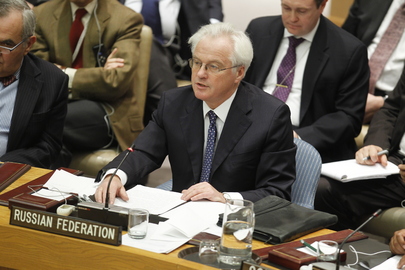The bicycle method is dead. The cyclist has fallen!
 (BRUSSELS2) The European Union will have to seriously reflect on its internal functioning as well as its philosophy. In different countries, on different grounds, the European method has suffered fundamental setbacks.
(BRUSSELS2) The European Union will have to seriously reflect on its internal functioning as well as its philosophy. In different countries, on different grounds, the European method has suffered fundamental setbacks.
Successive defeats?
It started in 2005 and 2007 with three successive referenda (France, Netherlands, Ireland) on the future European treaty. This continued in 2016 with the negative referendum in the Netherlands in April on the association agreement with Ukraine (which went completely unnoticed), with a Brexit referendum in the United Kingdom in June (far more substantial) and , lastly, the "No" of the Walloon and Brussels (Gaulish) village to CETA, the global trade and economic agreement with Canada. These "Nos" have nothing to do with each other. But they should appeal because they occur in the founding countries or close to the foundation (and not in the recent Member States). The European reaction has so far been very superficial, as in the first negative referendums of 2005-2007: we cried a lot, lamented and we moved on very quickly. Going back today, without any real purpose, would be the worst of all.
The people, this imbecile who understands nothing...
These important signs of falling out of love should be taken seriously and not scorned to the tune of "oh my god, these people (this leader) are really stupid and do not understand anything". The reality is that Europeans no longer seem to understand a Europe that escapes them. So they say no, just as much out of spite as out of incomprehension or refusal. This is not hostility to Europe as such. It's a crisis of confidence, above all, among the European supporters. Which is more serious in a way...
How is Europe doing? evil. Where is Europe going? we do not know
We will no doubt have to look the truth in the face: Europe is not falling apart because it has increasingly determined opponents. But also (and above all) because she disappointed her supporters.
Lack of support, not fierce opposition
European construction has been a subtle and balanced mixture of the Christian-democratic, liberal, social-democratic, alternative-green and even partly sovereigntist approach (1). This is what made its richness and its strength. One by one, it lost what made up this essence to fall back on a core, increasingly narrow, closer to the lobby than to citizenship. What happened in Wallonia is not an epiphenomenon. Paul Magnette is a real connoisseur of European things and rather a moderate among the Walloon socialists. But the base pushes... hard. If a referendum had been organized in Wallonia or Brussels, there is no doubt that it would have brought an identical result. What was unthinkable before has become reality today. Even among the most convinced Europeans, the European Commission no longer appears today as the defender of the general interest. And Europe no longer seems as necessary as before.
A means that has become an objective
The primary objective of European construction — " bring people together to make the bonds between peoples so strong that they no longer think of going to war — has been lost. The means of this objective — “bringing the economies together” — has been transformed in passing into “opening up the economies” — and has become the ultimate objective of European construction. Hoping to “make Europe loved” with this argument is a losing battle. And it is not by adding a few ersatz consumerist policies (renamed "citizenship") — such as lowering the price of roaming , or the more general granting of rights to air or rail transport or Erasmus consumers (which ultimately only concerns a limited segment of a generation)—that we will change this state of mind. Europe today is not only suffering from driving error but also from certain poor workmanship dating back to the 1990s.
Europe's invisible hand has stopped
The European policies designed in the 1980s and 1990s (single market, Euro, Schengen area, free movement) were based on a principle of optimism. They were going to "walk on their own", without police, without regulation, with the good will of all (States, economic actors, population). Although there were still some frictions, this model flourished because the general consensus was working and the economic growth was there. A kind of "European invisible hand" - the famous political will - made it possible to overcome the difficulties of the moment. A hand that is to Europe what the “invisible hand of the market” is dear to Adam Smith and liberal economists.
At the first rather strong gust, the lack of structure and control proved to be glaring. And the building seized up, threatening to collapse. Europe was naked... This was the case with the Euro with the Greek crisis where it was necessary to hastily build a rescue mechanism (the stability mechanism) and a control mechanism (budgetary surveillance). This was the case for the Schengen area with the European Border Guard Corps. This will be the case for the single market policy if we are not careful. Because the same defects are observable there.
Policies that suffer from serious flaws
The posting of workers policy is misguided by people who circumvent it to engage in social dumping (2). The policy of opening capital markets and services, or exemption from VAT, is misguided by companies (usually very large) that establish themselves in the country with the lowest tax rate. Significant fraud thus deprives States of resources. The policy of free movement is used by movements of terrorism and serious crime which ignore borders. The European Union has almost nothing to oppose to this. Its legislative mechanism is set in stone, with no possibility of quickly tightening "the bolts" in the event of observed deviation, unlike the national systems which have this tool (decree or circular in countries with written law, interpretative notice, case law ). It has no control service of its own: neither repression of fraud (accessible to ordinary mortals), nor tax harmonization, nor labor inspection to drive out fraudsters, nor federal police service, nor prosecutor, nor even European consumer service. (3). The very objective of European construction is confused.
A European construction impossible to define
How can we define European construction today in a few simple words? Where does Europe stop (its borders)? The policy of full-blown enlargement, of signing unlimited free trade agreements, has produced a sort of race ahead. Europe, instead of producing security (confidence), has produced insecurity. By promising mountains and wonders each time (jobs, growth), on the basis of more political than scientific assessments (read: With free trade agreements, tomorrow we shave for free!), Europe has lost some of its credibility, as has its propensity to predict catastrophe if certain advances or certain treaties are refused.
The raid of the politics of catastrophism
As soon as a European project seems about to be refused, European structures sound the red alarm: it is the foreseeable catastrophe, the economies will collapse, the companies will flee, etc. The referendum campaign in 2005 showed the limits of this tactic. The British campaign accentuated it. We let the most eccentric arguments develop without reacting (such as the gain of social benefits) then we suddenly evoked a catastrophic argument, closer to fear than to real fundamentals. In the end, the copy not resisting the original, the anti-European feeling prevails...
How to react ?
We must restore the heart to the work of the pro-Europeans, define the European project (clarify it), begin to consider that European construction can have several paths, several ideological pursuits and that liberalism is not the only possibility of this European construction.
Putting back the counter power
It will undoubtedly be necessary for the European institutions — starting with the main one, the European Commission — to accept and even integrate the criticism, to stop calling them "populist" (the fashionable insult in Brussels) or " extreme", which is simply a question of democracy. The existence of strong, effective checks and balances, which have the right to challenge a decision, even when it seems entirely justified, is part of democracy... We can challenge Orban's argument in Hungary , Theresa May in the United Kingdom or Magnette in Wallonia. But their legitimacy is indisputable. Wanting, as some Europeans advocate, to punish others for not agreeing with them is the beginning of the end.
Untie the link with lobbies
The "enemies" of Europe are not outside. They are often "inside". The permanent presence of lobbies, initiating or preventing legislation, around the European institutions sows trouble. Barroso's time at Goldman Sachs or Neelie Kroes' "sacred" lie are very symbolic of an era that must be over. The despairing silence of the European Commission on these subjects is a serious political error. If the revolving door of former commissioners, and especially former directors general, has become common, if not the norm, this practice is no longer tolerable today. In the same spirit, the system of systematic consultation with "interested parties" before any European legislation is a fundamental error. We don't write legislation for the "interested parties", we write legislation for the public good, for the interest of all. It is permissible to consult specialists in the field but not to make it an unavoidable prerequisite and all the more obscure as the consultation often takes place on the sly (4). This device should be removed.
Changing the mindset of those who run Europe
When we discover certain practices, certain internal behaviors, certain points of view... we are bewildered. The European administration, which was previously an envied model of efficiency, dynamism and competence, has become an anti-model where the most important thing is compliance with procedures and well-completed files. The basic principle is contempt for others (administrations of Member States, NGOs, citizens, etc.) who “do not understand anything”. The European administrator — at all levels — must go back to basics: paid with public taxes, he serves the public good and not his institution or his career. The question of the excessively high salaries of this public service – which is extraordinary in these times of crisis – must also be resolved (5).
Rebuilding a new Europe
Finally, the most important thing, we will therefore have to rebuild European policies, one by one, sorting out those that are necessary and those that are no longer necessary because they can just as well be managed by the States or even by the local authorities. , to develop policies which, on the contrary, deserve to be dealt with at European level (J.-C. Juncker's point of view is correct). We must stop a certain negative European pointillism: a different VAT for restaurants has never been a threat to balance and the single market. Similarly, the protection of endangered species, although it differs significantly between Poland and Germany, is not in itself a serious European problem.
Rediscover the spirit of coal and steel
We must rediscover the spirit of the alliance of coal and steel which prevailed at the beginning of European construction: to have economic ties so strong, so interdependent that it is impossible to go to war.
We must develop ambitious projects that structure European society, eliminate competition between States (and not the opposite) such as a corporate tax, joint border surveillance, a common energy policy (with a common purchasing centre), European-scale industries in the main economic sectors subject to global competition. We must invent a system of complementary social benefits at European level: the reduced-price Interrail card should not only target people under 18 (as proposed by the European Parliament) but all European citizens.
It is not by less regulation that we will make a Europe and that we will make it better loved. On the contrary... We favor unfair competition and, in the end, nationalisms, which are much more dangerous for Europe than all other forms of behaviour.
(Nicolas Gros-Verheyde)
To be continued (We next): A game of success for Juncker?
Read also:
- God save the Queen! Europe on the eve of a political revolution?
- Transparency or compromise
- The revival of the rotating presidency. A good thing ?
- A Charlemagne prize to the Pope for lack of Deus ex machina for Europe
(1) There is a non-negligible fringe of sovereignists who are fully aware that to safeguard national sovereignty, you must have European sovereignty to allow you to continue to exist at the global level. This was De Gaulle's bet and the path still followed by many Gaullists.
(2) The worm was in the fruit from the start. And as early as 1996, when the directive was adopted, an official from the European Commission (from DG V - DG in charge of employment) had identified some of the future problems (cf. conference in Nanterre).
(3) The service of the European Consumer Center is a vast joke. I tested it, I can attest to that. Six months to get an answer and give you the text of the directive that you can get in 5 minutes of research on the internet. And another three months to say you're right but they can't do anything then another month to say the only solution is a complaint (and still nothing guaranteed, say the same) for a case of flagrant violation of the European law, is light...
(4) Sometimes only a few weeks are left for a consultation, in the depths of a website which requires a European specialization to find it :-), in English only which is more administrative gibberish than Shakespeare's language, etc. .
(5) The European administration today lives far beyond its means and European means. It is difficult to accept today that a non-negligible part (up to 1/6th of the staff in certain DGs and EEAS) of the European administration receives more than a President of the Republic or a Prime Minister, and even more abnormal that a European civil servant earns two to four times more than his counterpart in the Belgian federal administration (at equal level and value).



Hoping that your criticism, fundamental and harsh, but constructive, is heard! I agree with almost all of your arguments. The institutions must recover, and finally rediscover the sense of the general interest.
A European civil servant